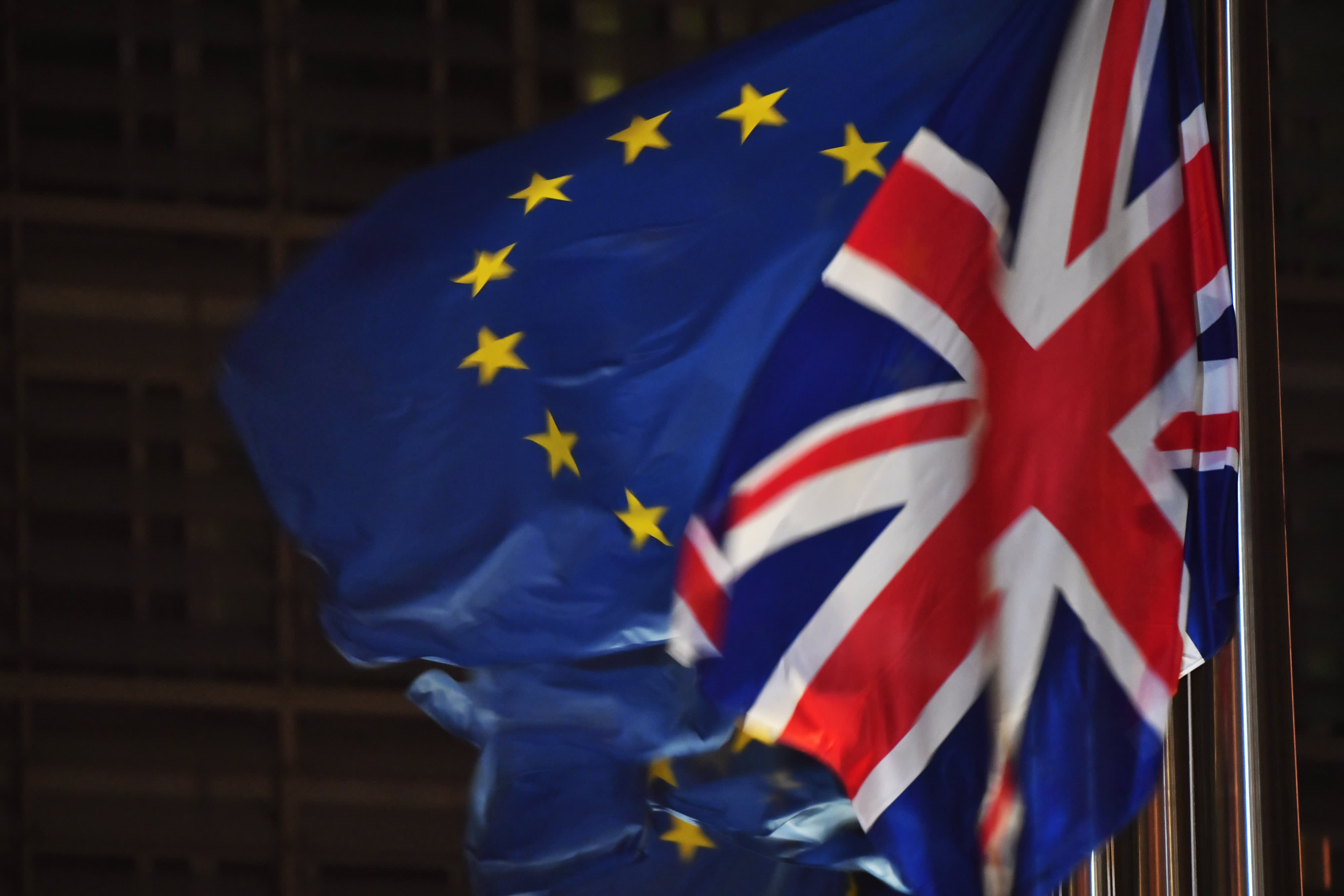
A British national flag flies next to European Union (EU) flags outside the Berlaymont building in Brussels.
Bloomberg | Bloomberg | Getty Images
LONDON – The European Union and the United Kingdom have clashed over exports of coronavirus vaccines, with Britain vehemently denying that it has blocked shipments to other countries.
The latest battle arose after Charles Michel, President of the European Council, accused the UK on Tuesday of a “outright ban” on the export of Covid-19 vaccines.
He said in a newsletter that he was “shocked” to hear allegations of vaccine nationalism against the EU, while other parts of the world, such as the UK and the US, have “imposed outright bans on these vaccines.”
It was not the first time that European officials made comments on this topic. European Commission President Ursula von der Leyen said at a press conference in February that the United States and Britain have put in place systems that block the export of vaccines.
However, the British government quickly denied the allegations on Tuesday. “The UK government has not blocked the export of a single Covid-19 vaccine. Any references to a UK export ban or restriction on vaccines are completely false,” a government spokesman told CNBC.
The EU did not wait long to reply. Michel, chairman of the meetings between the 27 heads of state of the EU, said on Twitter that there are “different ways to ban or restrict vaccines / medicines”.
“Happy if the UK’s response leads to more transparency and more exports,” he added.
British Foreign Secretary Dominic Raab will hold talks with EU officials on Wednesday to clarify the situation.
How they got here
Concerns about vaccine nationalism – the idea that a country or region is doing its utmost to ensure it has Covid-19 vaccines for its own population, even at the expense of other parts of the world – emerged in late January forward.
The European Union, which has faced several problems with the rollout of vaccines, enacted legislation at the time that member states can stop the export of Covid vaccines produced in the block. But this can only be applied in two cases: if a pharmaceutical company does not honor its contracts with the EU and if the injections go to countries that are considered non-vulnerable. Low- and middle-income countries, as well as neighboring countries, are exempt from these restrictions.
These restrictions were first applied last week when Italy stopped shipping AstraZeneca jabs to Australia.
However, the EU has said it has not blocked exports of vaccines produced by Pfizer-BioNTech or Moderna, as these companies have so far fulfilled their commitments to the EU.
“I have long argued that the UK-EU relationship after Brexit would be difficult, but I am even surprised how far and fast it has sunk,” said Mujtaba Rahman, director of Eurasia Group, on Twitter on Wednesday.
What else is happening?
At the same time, the EU and the UK are also at odds with their post-Brexit arrangements.
The UK announced that it is extending the grace periods for border controls on the Irish Sea – a pledge to the EU during the negotiations to leave the bloc, which should have been completed by the end of March. Westminster has now given British companies until October to prepare for new customs controls.
The EU has complained that this move has not been discussed with them in advance and is now preparing legal action against the UK government.